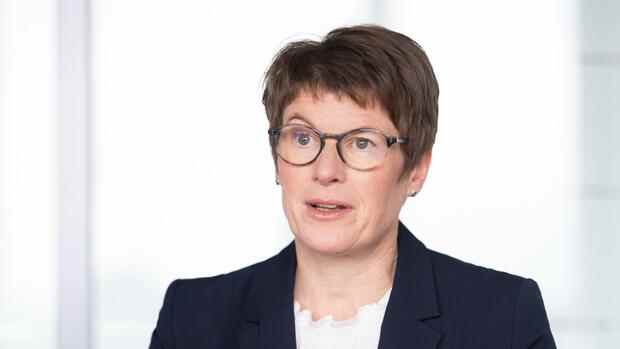“It’s a mystery to me why a reduction in the electricity tax isn’t being launched right away,” says the economy.
(Photo: Federal Statistical Office/BILDKRAF)
Berlin Veronika Grimm is to remain a member of the Expert Council of Economic Wise Men for a further five years. The Federal Cabinet decided on Wednesday to propose to the Federal President that the economist be reappointed to the Council. Grimm should be part of the committee until the end of February 2027.
The 50-year-old has been a member of the Advisory Council since 2020, when she took over the mandate from Isabel Schnabel, who had moved to the Executive Board of the European Central Bank. Grimm’s first, shortened term of office ends in February. She also works as a professor of economics at the University of Erlangen-Nuremberg and conducts research primarily on energy markets and behavioral economics.
It was expected that the government would continue to rely on the microeconomist. She is considered one of the most important voices when it comes to questions about the energy transition and the transformation of the economy.
Along with Claudia Kemfert from the German Institute for Economic Research (DIW), Grimm is the only popular voice in German economics who researches the details of the energy market and draws conclusions for the economy as a whole.
Top jobs of the day
Find the best jobs now and
be notified by email.
“I am pleased that Professor Grimm, with her proven expertise in the field of energy and climate policy, will continue to strengthen the Council of Experts,” said Federal Economics and Climate Protection Minister Robert Habeck (Greens).
Her goal in the next five years as an economist is to link financial and macroeconomic ideas more closely with energy and climate economics.
>> Read about this: The “new climate policy” has not been thought through economically, write Veronika Grimm and Ottmar Edenhofer
“This often does not happen to a sufficient extent – instead, for example, the desire for more government and higher spending is motivated by climate protection,” Grimm told the Handelsblatt. “I want to contribute to building bridges between the different perspectives here, so that effective climate protection can succeed.”
The combination of these two economic disciplines is currently most evident in the discussion about the rapidly increasing energy prices. In January, these were more than 20 percent higher than in the same month last year.
The federal government has already introduced measures to relieve consumers and companies, most notably the earlier abolition of the EEG surcharge.
Tax cuts are urgently needed
However, Grimm does not consider this to be far enough; what is needed is a tax cut. “It’s a mystery to me why a reduction in the electricity tax isn’t being launched right away,” she said.
Robert Habeck and Christian Lindner could take such an important, immediately helpful measure. “That would be more targeted than other tax cuts and would also help many small and medium-sized businesses suffering from high energy prices.”
The idea of reducing the electricity tax is also circulating in Berlin. In concrete terms, however, this has not yet been tackled, according to coalition circles. This could also be related to the fact that tax cuts are considered unpopular by the SPD and Greens electorate.
Grimm, on the other hand, doesn’t bother making uncomfortable suggestions. It may stand for “new” topics with energy and climate. However, this does not prevent us from standing up for regulatory principles, which are increasingly falling behind in the current discussion.
So it happened that in the last annual report by the Council of Economic Experts, together with the economist Volker Wieland, she spoke out against circumventing the national debt brake and raising the EU debt limits.
The other two council members, Achim Truger and Monika Schnitzer, disagreed. And so, for the first time in the more than 50-year history of economic wisdom, there was a stalemate.
However, it should be the last. A decision is to be made in the near future about the vacant successor to the wise man Lars Feld, who has now been hired as chief advisor to Finance Minister Lindner. It is still unclear whether another energy expert will join the committee alongside Grimm.
More: New chief advisor to Lindner Lars Feld: “I’m not a prevention economist”
